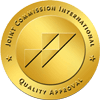Alcohol and Your Liver
- January 31, 2022
- Prosperity Haven
- Addiction Treatment

Alcoholism can have many negative effects on your mind and body, but it is particularly harsh on your liver. This is due to the fact that alcohol causes fat and scar tissue to build up in the liver. This is the primary form of liver damage from alcohol, but there are also other long-term concerns, including various types of alcoholic liver disease. As a result, many habitual drinkers suffer from liver issues later in life.
However, this doesn’t mean that alcohol-related liver problems only affect older adults. In fact, the damage can begin very early on in life. It all depends on when you begin drinking, as well as how often and how much you drink. So, in today’s guide, we will look at the relationship between alcohol and your liver, and the potential long-term effects of alcoholism.
Alcoholic Fatty Liver Disease
As the name implies, fatty liver disease (also known as hepatic steatosis) is a condition in which too much fat has built up in the liver. Since your liver is one of the most vital organs in your body, this can lead to many different health issues. However, it is important to note that there are two different kinds of fatty liver disease: nonalcoholic fatty liver disease (NAFLD) and alcoholic fatty liver disease (also known as alcoholic steatohepatitis).
NAFLD is surprisingly common, affecting nearly a quarter of the global population. While it is not caused by excessive alcohol use, it still results in fatty tissue build-up and potentially even inflammation or scarring in the liver. If left untreated, NAFLD can lead to liver cirrhosis or liver cancer.
Alternatively, alcoholic fatty liver disease is directly caused by heavy alcohol use. When you consume alcohol, your liver breaks down most of it so that it can leave the body. However, during this process, various harmful substances are produced. These toxic substances directly damage cells in the liver, cause inflammation, and generally weaken your body’s ability to defend against disease and infection.
As you can imagine, the severity of alcoholic fatty liver disease is directly linked to the amount of alcohol you consume over time. However, while alcoholic fatty liver disease is definitely a cause for concern, it is only the first stage of liver disease for many people who suffer from alcoholism. After this initial stage, many alcoholics who fail to stop drinking progress into alcoholic hepatitis and cirrhosis of the liver.
For better or worse, most people who have alcoholic fatty liver disease have few, if any, symptoms. You may experience some pain in the abdomen near your liver, but otherwise, it is not very noticeable in the early stages. In any case, you will need to have an exam from a medical professional to diagnose and treat the condition.
Alcoholic Hepatitis
Alcoholic hepatitis refers to inflammation of the liver that is caused by excessive alcohol consumption. As previously mentioned, alcoholic hepatitis is usually preceded by alcoholic fatty liver disease. It usually takes many years of heavy drinking for this condition to occur. However, the sooner you address potential alcohol-related liver issues, the easier it will be to avoid more serious health issues down the road.
It’s important to note that alcoholic hepatitis does not occur for all heavy drinkers. Even some people who drink alcohol in moderation can develop the condition. It depends on a variety of factors, including your weight, ethnicity, and gender. Alcoholic hepatitis tends to be most common in women and the obese. Black and Hispanic drinkers are also more likely to develop alcoholic hepatitis.
While alcoholic fatty liver disease is often seen as a relatively low-risk condition that can be treated with reduced drinking and healthy habits like diet and exercise, alcohol-induced hepatitis is significantly more serious. If you are diagnosed with the condition, you must stop drinking alcohol or risk facing serious damage to your liver, and perhaps even death.
If you’re concerned that you may be at risk for alcoholic hepatitis, be sure to consult your doctor as soon as possible. Additionally, look out for some or all of the following alcoholic hepatitis symptoms:
- Yellowing skin or eyes (jaundice)
- Loss of appetite
- Nausea and vomiting
- Tenderness or pain in the abdomen
- Low-grade fever
- Fatigue and weakness
- Fluid accumulation in the abdomen
- Confusion or behavioral changes
- Kidney or liver failure
Alcoholic Cirrhosis
Alcoholic cirrhosis is generally regarded as a late stage of alcohol-related liver disease. During this stage, your liver has already experienced severe scarring (also known as fibrosis) as a result of chronic alcoholism. Alcoholic hepatitis (or even other forms of hepatitis) can also lead to cirrhosis of the liver. As your liver attempts to heal itself from the toxins produced by alcohol, scar tissue forms inside the liver.
It is similar to a deep cut in the skin that produces a scar. Unfortunately, scars in the liver are far more serious, as more and more scar tissue can make it difficult or even impossible for the liver to function properly. As alcoholic liver cirrhosis progresses, it can quickly become a life or death situation. Unfortunately, once you reach the point of alcohol-induced cirrhosis, the damage to your liver cannot be reversed. This is why early diagnosis and treatment is so important, as it can prevent potential liver failure from alcohol abuse.
If you are a heavy drinker and you are concerned about cirrhosis of the liver, talk with your doctor immediately. Additionally, be sure to look out for any of the following symptoms:
- Persistent fatigue
- Frequent bruising or “thin skin” (quick to bleed)
- Loss of appetite
- Nausea
- Swelling in the extremities
- Weight loss
- Dry, itchy skin
- Yellowing of the skin and eyes (jaundice)
- Fluid accumulation in your abdomen
- The appearance of spider veins
- Redness in the palms of the hands
- Confusion, drowsiness, and/or slurred speech
As previously mentioned, severe damage to the liver cannot be undone. However, you can get treatment to prevent further damage to your liver. More than anything else, your doctor will likely recommend dietary changes to maintain a healthy body weight. Additionally, you will need to stop or greatly reduce your consumption of alcohol and avoid risk factors that could expose you to hepatitis B or C.
Alcohol Addiction Recovery and Treatment
As you can see, heavy alcohol consumption can greatly affect your quality of life and the health of your liver. You need your liver to help digest food and remove toxins from your body, so if it loses its ability to function properly, the repercussions could be life-threatening. For this reason, alcoholism and binge drinking should be treated as soon as possible to avoid major health issues like liver failure.
While some of the conditions listed above can affect people who only drink in moderation, they are far more common and severe for people who suffer from alcohol addiction. Fortunately, you can avoid the conditions above by enlisting the help of the experts at Prosperity Haven. In addition to round-the-clock care and counseling, Prosperity Haven functions as a full-service alcohol rehab and detox center.
Are you, your child, friend, coworker, parent, or spouse struggling with alcohol addiction? Are you looking for an alcohol treatment program that targets each patient’s specific needs? Finally, are you looking for a comprehensive alcohol addiction center that provides a wide range of effective treatment options? If so, feel free to contact the experts at Prosperity Haven to learn more.
YOUR NEW BEGINNING
STARTS HERE
Take the First Step and Reach Out Today






